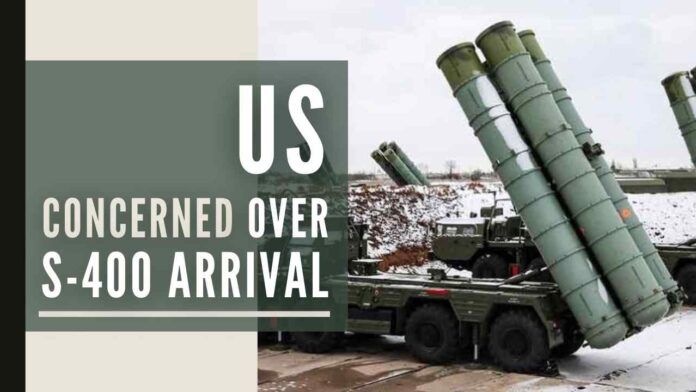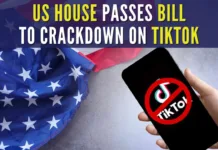
CRUCIAL or CAATSA against India’s purchase of S-400 missile system; Washington in Dilemma
The United States has concerns with India’s decision to purchase S-400 medium-to-long-range anti-aircraft missile systems from Russia.
Pentagon Press Secretary John Kirby told a daily news briefing that this concern is repeatedly expressed to their partners in India. He said that Defence Secretary Lloyd Austin had talked about it with Indian officials when he visited India in March.
He said in reply to a question at his daily briefing, “We certainly have concerns over that system, but I don’t have any updates.”
Although John Kirby has remarked on the India-Russia deal, it appears from his statement that Washington has not yet decided how to deal with the transaction that requires the administration of President Joe Biden to either impose sanctions against India or give it an exemption.
The 2017 law, Countering America’s Adversaries Through Sanctions Act (CAATSA), requires the administration to sanction those buying Russian military equipment.
The US has imposed sanctions on its NATO ally Turkey for buying the S-400 system.
India’s emergence as a key partner of the US in the Indo-Pacific region where they confront threats from China creates a dilemma for Washington. Reflecting this, Republican Senators Ted Cruz said while introducing legislation to exempt India: “Countering China’s aggressive behaviour requires viable partners in Asia and beyond, and the US-Indian relationship has become a cornerstone of our multilateral efforts.”
The proposed legislation introduced by him and two other Republican senators are called the “Circumspectly Reducing Unintended Consequences Impairing Alliances and Leadership Act of 2021” (CRUCIAL Act) and it seeks to exempt the QUAD members from sanctions for ten years.
The other two members of the four-nation group, Japan and Australia, do not buy Russian weapons but adding them to the legislation would make it more palatable to some legislators by giving the appearance that is not specifically about India and turn the focus to China’s aggressiveness, especially in the Indo-Pacific where the US has vital interests.
Democrat Senator Mark Warner, who heads the powerful Senate Intelligence Committee, along with Republican panel member John Cornyn has also written to Biden against sanctions.
But another Democrat, Bob Menendez, who heads the Senate Foreign Relations Committee, had written to Defence Secretary Lloyd Austin earlier this year that “if India chooses to go forward with its purchase of the S-400, that act will clearly constitute a significant, and, therefore, sanctionable, transaction with the Russian defence sector under Section 231 of CAATSA.”
New Delhi had announced its intention to purchase Russian-made S-400 air defence systems back in 2015. A $5.43 billion contract on the delivery of five regiment sets of S-400 ‘Triumf’ anti-aircraft missile systems was signed during Russian President Vladimir Putin’s visit to India in October 2018.
[With Inputs from IANS]
PGurus is now on Telegram. Click here to join our channel and stay updated with all the latest news and views
For all the latest updates, download PGurus App.
- Karnataka HM apologizes to Neha’s parents while the killer Fayaz’s mother expresses her desire to ‘punish her son’ - April 20, 2024
- US: Indian student’s death possibly linked to Blue Whale suicide game - April 20, 2024
- BSF seizes China-made drone near India-Pakistan border in Amritsar - April 20, 2024










